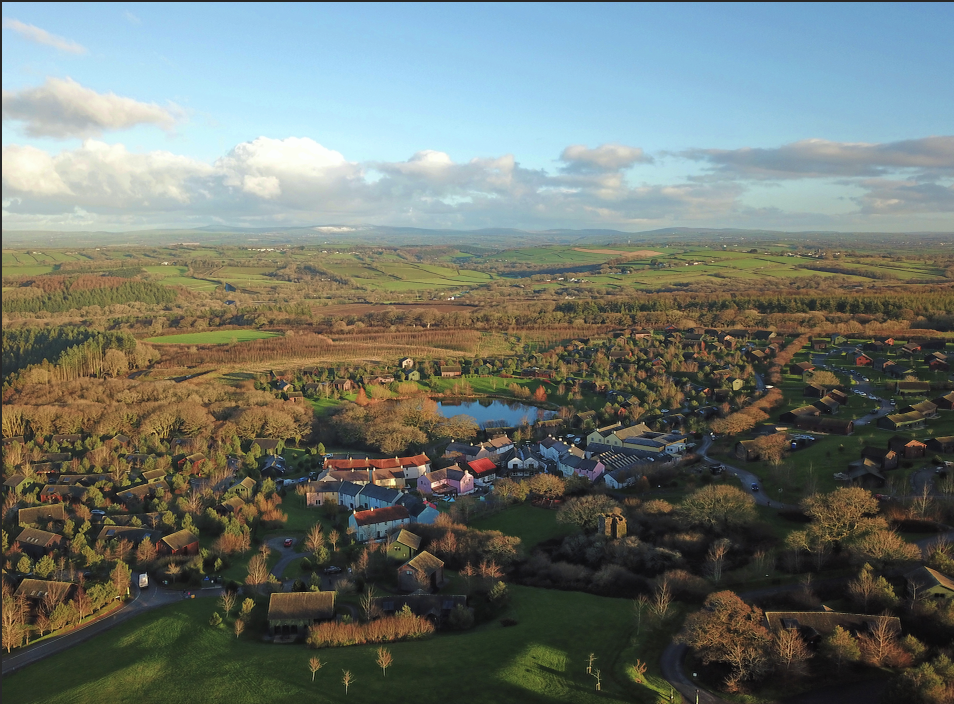
WALES: Bluestone Resort has become the first hospitality business in Wales to switch its gas supply to 100 per cent BioLPG.
The gas supply is an alternative to standard propane and is made from plant and vegetable waste.
The resort, which offers lodges and cottage set in 500 hectares of Pembrokeshire on the coast national park, has effectively wiped out its Scope 1 and 2 emissions by using the plant-based fuel.
With a keen focus on nature, the Pembrokeshire resort has also been working with Kent Wildlife Trust (KWT) to check its impact on site biodiversity.
The KWT report found that though construction of the resort entailed some removal of habitat, the cessation of farming, restoration of grassland and creation of woodland, coupled with sensitive land management, means the site is on course for a 50.7 per cent net gain in biodiversity.
This positive result has happened through planting tens of thousands of trees, creating the Blackpool Nature Reserve, installing wildlife habitats, creating a lake for breeding and nesting, creating wildflower meadows and working with wildlife experts.
The KWT report states: “It is clear that significant positive work to protect, restore and create habitat, particularly in terms of woodland and grassland, has happened since the resort started its development. Over 12 hectares of priority native broadleaved woodland has been created since the development of the resort, immediately buffering and connecting the existing Ancient Woodland.”
The report also found that by creating and enhancing wildlife habitats, the development of Bluestone and the way it is operated has removed far more greenhouse gases (GHG) from the atmosphere than if the area had remained a dairy farm.
KWT calculated that if the area had remained a farm, between 2006 and 2022, it would have sequestered 509 tonnes of CO²e. But because of the restoration and creation of woodland and wildlife habitats, the area has actually sequestered 1,724 tonnes – a difference of more than 200 per cent.
Marten Lewis, head of corporate responsibility at Bluestone, said: “Back when the resort was little more than a big idea, we said that nature would be at the heart of the Bluestone experience. Nearly 20 years on, we’ve stayed true to that vision. In terms of biodiversity, this area is now much richer and better able to help the fight against climate change than if Bluestone had never left the drawing board. That’s very gratifying for us, and we’re delighted this report acknowledges not just our hard work but the values behind it too.”
Vincent Ganley, Managing Director of Kent Wildlife Trust, said: “It’s easy to assume that large scale development inevitably has a negative impact on biodiversity and natural world. In Bluestone’s case, that assumption is incorrect. In fact, our studies show that the reverse is true. Biodiversity net gain represents an approach to development that aims to leave the natural environment in a measurably better state than it was beforehand. It’s clear that this was Bluestone’s intention from the outset. We commend them for it, and we look forward to seeing what more they achieve in the coming years.”
Bluestone is also home to The Well Spa Retreat. All electricity at the Well Spa is purchased on a REGO-backed tariff, which means every kilowatt-hour used is replaced by one from certified renewable sources.
In a normal year of operation, The Well Spa could expect to use 240,000 kwh of electricity and 29,000 litres of gas. With a standard electricity tariff and conventional propane, that level of energy use would equate to the emission of 91.7 tonnes of GHG. By using BioLPG and a REGO-backed tariff, that figure is slashed by 99.9 per cent to just 62kg.
Well Spa manager, Samantha Hewer, said: “Our main aim at The Well Spa is to provide our guests with a wonderful spa experience, in an environmentally-responsible manner, thus working with a community benefit society and investing in green energy are just two ways in which we’re trying to show that sustainability and luxurious indulgence are not mutually exclusive.”
Image: Bluestone

